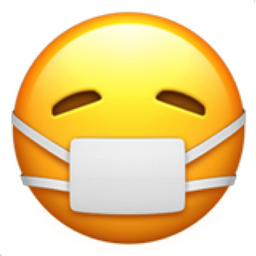Published: Nov. 08, 2021, 11:43 a.m. – Harrisburg Patriot-News
By Jake Miller
Like many other industries, public schools are reeling from the consequences of being understaffed. A lack of aides, custodians, security, bus drivers, lunch staff (the school’s backbone who can make much more doing other lines of work) coupled with a lack of substitute teachers – where 60% of our vacancies go unfilled – makes last school year, aka “the toughest ever,” seem like recess.
The responsibility of ensuring a certified educator is at the front of every classroom falls upon our current educators. And it is unsustainable.
This comes at the heavy cost of educators’ planning and lunchtimes. These are crucial lifelines after interacting with 100s of students. It’s a time when the behind-the-scenes work of grading, creating lessons, cooperating with colleagues, communicating home, and catching up with absent students is fully engaged. It’s pivotal to providing our most meaningful instruction – and all its fixings – for our students.
And this detriment has two faces:
- Professionally, it’s wearing down our educators. Trolls like to say, “Teachers have all the time in the world,” but after interacting with 30 school-age children for an hour, most adults need a break. For educators this year, there have been no breaks. As a result, they are breaking.
- Financially, it’s more expensive to pay teachers to cover classes than it is to pay for a substitute for the day. Districts pay $100-150 for substitute teachers for the day; the cost to cover my classes if I’m absent is roughly twice that if the staff is forced to pick up the coverage.
How can we fix the substitute problem?
On a personal level, reach out to neighbors who are good with kids and who could use a few dollars in their pocket, but want to sustain their flexibility. Encourage them to approach their closest district and enroll in the guest teacher program through each of the county’s intermediate units (IUs).
As for local school boards, there are several ideas that could be implemented. First, start by increasing accessibility and pay. “It should not be easier for my child to drive to Target and apply for a job and make more money,” said one parent considering substitute teaching, “than it should for someone with a 4-year degree to be at the front of a classroom.” There could be bonuses for staff members who help recruit substitutes, and bonuses for substitutes who work a certain number of days.
On the state level, legislatures should target resources to specific groups to encourage them to fill this gap. The first is to help student-teachers and possibly even college-deemed student observes to help provide some coverage. There can also be plans in place for people to leave their line of work and enter what we do, which educators (myself include) really, truly do love to do. To get them in the education pipeline, pay them a support staff wage and give them health care as student teachers.
The second and most important group to target is retirees. In Pennsylvania, they are currently relegated to “emergency status.” To quote one of my retired friends, “If this isn’t an emergency, I don’t know what is.” Retirees are our most reliable, veteran leaders who are needed now more than ever.
On a national level, it is time to start fully funding schools, especially those in struggling communities where tax bases are stretched. It is time to stop passing mandates like strenuous testing guidelines and time to focus on what drives quality education forward. It is time to make public education – and skills-based education to rectify the responsibility, resilience, and readiness of our future citizens.
And for all stakeholders, it is time to stop demeaning this profession and start valuing it as a cornerstone of our democratic republic and economy. Decades of disparaging and denying the influence of a great teacher had drastically decreased those seeking to be one. Coupled with the roller coaster onset by COVID-19 these last 31 months have forced far more out of the profession than encouraged others to enter it.
This year is one in which we can possibly re-invent the wheel for education. It is one where we can reignite the passion in our students. It is one where they so desperately are yearning to be in school and to not only “catch up,” but to launch ahead. To do that, educators all across Pennsylvania and our nation need your help to do what they do best – teach them up.



